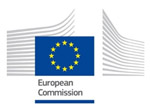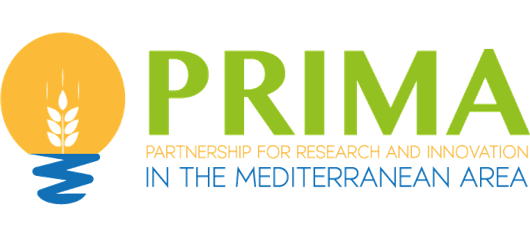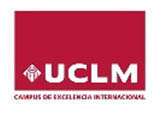
Universidad de Castilla-La Mancha,Spain
The UCLM is a regional and multicampus university founded in 1985. The total budget for 2020 was 269.3 M€ used for maintaining 40 educational centres, teaching around 32,000 students, and providing services and infrastructure to 186 research units. The UCLM-CREA research group was established in 1996. In this moment it is comprised by 9 PhD and 10 postgraduate researchers. This group was coordinated by Professor José Mª Tarjuelo until 2016, being coordinated in this moment by Associated Professor Alfonso Domínguez. The main research activities are related with the management of water and energy for irrigation in semiarid areas under water scarce conditions. These activities have been carried out in an integrated manner with farmers, regional and local governments, and regional and national enterprises. Internationalization of our activities is also a priority, demonstrated by fluent relationships with research groups from South America, Mediterranean countries and USA, among others. Regional, national and international dissemination of the research results at scientific and technical level has been carried out with the objective of increasing the transference of knowledge to the productive sector. The main research activities developed can be summarized as: development of Decision Support System (DSS) for the management of energy and water at plot, farm and basin level (crop selection, RDI management, bayesian networks…); training and transference of tools and knowledge to technicians and farmers, mainly through the Irrigation Advisory Service of Castilla-La Mancha, which was managed by CREA since 1999 to 2015. These activities have been also developed during the participation in several EU projects as NIWASAVE, MERIT, DeSurvey, or FLOW-AID.
Role in the project:
UCLM-CREA is the project coordinator, lead the WP3 “Demo-sites’ set up and models/tools’ calibration”, and participate in the 6 Work Packages of the project
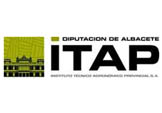
Instituto Técnico Agronómico Provincial, Spain
The ITAP is an institution belonging to the Albacete Provincial Council and it was created for a more effective management of its Agricultural Services. The main objectives of the Institute are research, extension and advisory services for farmers of Castilla-La Mancha region. In 1988 the ITAP created the Irrigation Scheduling Service (ISS) that was focus on providing growers weekly the crop water requirements for the major crops of the Albacete province. Nowadays, the ISS advises directly 34,000 ha of irrigation in four irrigation areas, which there are 28 irrigation communities. The ISS provides irrigation water requirements tailored for 83 commercial farms and more than 580 field plots (30 different crops). In 1990 the ITAP created the Fertilization Advisory Service (SAF), to help farmers and technicians on improving nutrients use efficiency. The SAF recommends fertilizers requirements tailored for the major crops in the region, based on the evaluation of the potential of the crop capacity and under technical, socioeconomic and environmental restrictions imposed by each particular situation. Moreover, the SAF conducts through its chemical laboratory analysis of soil, fertilizers, water and leaves. The Remote Sensing and GIS unit has participated in different projects aimed to estimate crop water requirements based on remote sensing technologies.
Role in the project:
ITAP is actively involved in WP3, WP4 and WP5, and it is coordinating works conducted in the selected farms from Spain demo-site.
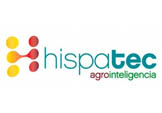
Grupo Hispatec Informatica Empresarial S.A., Spain
Hispatec is an ICT company focused on SMART Agro solutions (Software manufacturer and integration of Hardware and IoT solutions), Advanced Analytics using BIG DATA technologies, Traceability, M2M technologies, Machine Learning, Deep Learning, etc. Its mission is to create and provide the best technology solutions for companies of all types and sizes in the agri-food sector. Hispatec has been more than 30 years working for Agri-businesses, with 120 ICT experts and more than 400 customers, agri-businesses selling more than 4 billion € in fruits, vegetables, grains, wine or olive oil. Hispatec is present in different regions in Spain, Morocco, Japan, Chile, Peru and Mexico with own resources and through a solid and well-established partners distributors network. Hispatec creates solutions in different areas, such as field production, FMIS (Farm Management Information System), SMART Farming, BIGDATA, IoT, warehouse, sales, logistics, accounting, traceability and food safety. Hispatec has deep experience in the development of ICT solutions integrating sensors and probes, data logging devices, fertirrigation actuators, tele control devices and, in general, SMART farming and traceability technologies with processes of handling, packaging, warehouse processes, product transformation, commercialization, logistics, etc. All these solutions and ICT technologies integrate the data using INTERNET, where the devices connect directly and send the data to the platforms in close-to-real time mode. Hispatec creates and integrates solutions and DSS in different technological platforms, such as Mobile (SMART phones, tablets or digital pens), WEB and desktop applications, being able to orchestrate the data in all the agri-food value chain, i.e., from crop to fork (from seed to the consumer). The company has expertise in multi-actor approach projects and has been participating and participates in other projects that includes this type of actions, for instance: WEAM4i - FP7 program, IoF2020 and SMARTAGRIHUBS, both H2020 program. Hispatec matches the tasks in the proposal since it has deep experience in agri-food value chain projects, leading deployments in multiple types of crops, contemplating SMART Farming processes linked to agro-industry control processes.
Role in the project:
Hispatec will provide all the IT solutions supported on an IT platform that will be built for implementing the irrigation advisory board based on the irrigation models that will be designed and deployed. Hispatec will provide the IoT devices that will be installed on the fields in order to capture automatically all the agronomic parameters needed as input for the irrigation models.

University of Thessaly, Greece
The University of Thessaly was founded in 1984 and has elected the first Rectorate Board in 1998. Its administrative and academic centre is in the city of Volos. In order to serve the needs of the region of Thessaly, its first Departments were based on agricultural, educational and technological sciences. The main mission of the University of Thessaly is the promotion of scientific knowledge through research and the contribution to the cultural and economic development of the local community and wider society. It is known for its excellent research performance and outstanding scientific achievements, in accordance with the international standards. The excellent equipped Laboratories of the different Departments and Research Units have a number of well trained researchers to support them. The members of the academic and research staff participate in European research networks and numerous innovative research projects in the EC. At the present time, the University of Thessaly has 9.647 undergraduate students, 1.471 postgraduate students and 1.148 PhD students. It also has 560 faculty members, 98 members of teaching staff with a temporary teaching contract, 308 members of administrative staff and 57 members of Special Technical Laboratory Staff. It is a University with its own identity and with a prominent position in our national educational system, known for its quality in teaching, research, human resources, spirit of cooperation at all levels and a dynamic presence in the society.
Role in the project:
The research team of UTH brings expertise, through numerous national and international research projects on agrohydrology, agrometeorology, irrigation water management and networks, management of agroecosystems, modelling, remote sensing and GIS in agriculture, environmental hazards, climate variability and change. The role in the project is to contribute to WP2, WP3, WP4 and co-leader in WP5.
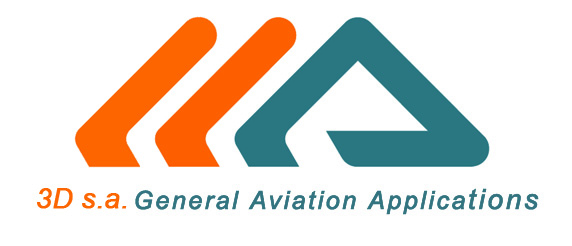
3D s.a. General Aviation Applications, Greece
3D S.A. is a Greek private company founded in1976 in Thessaloniki. The company provides custom made services and applications covering all major contemporary activities in Greece and abroad and since 1981 has been actively involved in several Weather Modification Programs (rain/snow enhancement and hail suppression). 3D S.A. offers a distinguishing range of services that rightfully makes it unique in Europe and one among the four most recognized companies worldwide specializing in Weather Modification Applications. Our mission is to promote innovation, foster technological advancements and entrepreneurship in order to provide our customers with the best products and services in the most effective manner. Our philosophy is to evolve always in line with the aviation industry, without losing focus on our goals. We fully embrace the social and environmental aspects of sustainability as part of everything we do from improving our own performance to influencing positive change for the wider audience.
Today, 3D S.A. offers a distinguishing range of custom made aviation and agricultural applications and related services.We have accumulated a respectable wealth of experience and we own state- of- the -art and specially modified equipment.We apply the most up to date and scientifically proven methodologies to our operations and we maintain an invaluable pool of certified and highly qualified professional personnel.
3D is the first company in Greece to be certified as a Drone Academy School in 2017 by the Civil Aviation Authority (EL-UAS-TC1). We offer drone services such as spraying, surveying and photography.
Role in the project:
3D SA is involved in WP2 and contribute to the end-user IT platform development. Also in WP3, where they will produce meteo and climatic tools using the Weather Research and Forecasting system (WRF) and in WP4 where they will validate the performance of the above tools in the demo sites. Drone maps from drone surveys will be used to evaluate the stress condition of the fields. Finally, they will contribute to the definition of profitability scenarios at the demo sites areas, which will include the effect of climate change (WP5).
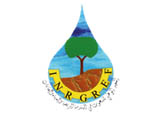
Institut National de Recherche en Génie Rural Eaux et Fôrets, Tunisia
INRGREF is a public institution that depends on both the Ministry of Agriculture and Water Resources and the Ministry of Higher Education and Scientific Research. The missions of INRGREF are:
- Undertake scientific research relative to the exploitation and the rationalization of natural resources in rural areas in order to increase their efficiency use.
- Undertake research on renewable energies, particularly solar and wind energy.
- Contributes to the development of national strategies in the field of water, soil and forests.
- Participate in the development of scientific and technological research and its integration into the economic and social fields.
- Provide training and supervision for Master and Thesis students in collaboration with higher education institutions.
- Provide training for farmers and Engineers in collaboration with the Technical Departments of the Ministry of Agriculture
The mission of the institute, which generally seeks the rational exploitation of natural resources by improving their use efficiency in a context of climate change, as well as the contribution to the training of Engineers, students and farmers is quite in line with the objectives defined by SUPROMED project.
Role in the project:
INRGREF is the leader of WP5 "From farm to the Mediterranean basin impact analysis" and it also contribute in all of SUPROMED WPs.
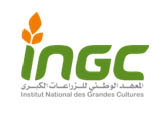
National Institute of Field Crops,Tunisia
The National Institute of Field Crops (INGC) has been created since 16 mars 2009, as a non-administrative state-owned company under the supervision of the Ministry of Agriculture and Water Resources and Fisheries endowed with the civil personality and financial independence. The INGC, is being one of the principal public organizations in the concretization of the national strategy aimed to achieve food security via strengthen efforts to improve the development of sustainable agricultural technologies and their transfer and dissemination in order to increase yield of field crops in terms of production and quality taking into consideration the conversion needs. The INGC is in charge of the following missions:
- Implementation of applied and on-Farm research (R/D) on field crops (cereals, legumes, forage crops, and
- industrial crops) that address major farmers' needs and priorities which covers several aspects (crop rotation, testing new germplasm, Pesticides, Fertilizers, storage…), taking into account challenges posed by climate change
- Development and out-scaling of the appropriate technical and economic packages
- Organization of training courses for framers and extensionists.
- Assisting in developing enabling policy environment that supports the uptake and impact of improved technologies
- Enhancing capacity of farmers via the organization of field events (field visits, field days, farm field school and travelling workshop…)
- Development and distribution of technical references.
- Conducting prospective studies on the field crop sector.
To achieve these goals, the INGC activities were carried out in close collaboration with stakeholders at different levels in the sector with the ambition to encourage cooperation, collaboration and knowledge sharing among partners. In this regard, a new learning, participatory and interactive approach where developed based on the implementation of platforms covering all bioclimatic zones of Tunisia.
Moreover, in order to upscale improved technical package and to enhance farmers’ know-how and practices many tools were used as following:
- The Short Messaging Service (SMS) technology as a tool to improve farmers’ and extensionists timely access to technical knowledge and to increase technology adoption.
- Development of Android Mobile Application as a decision-making tool for irrigation monitoring
- Development of Cereal Expert System
Role in the project:
INGC will contribute at the implementation of the activities of WP3 and WP4.
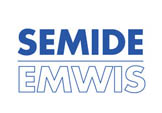
Technical Unit of the Euro-Mediterranean Information System on know-how in the Water sector, France
SEMIDE is a strategic tool for exchanging information on the water sector among the Euro-Mediterranean Partnership countries. It focuses on assisting the Mediterranean Partner Countries to develop their own water intranets and to allow more coherent water planning. SEMIDE aims at collecting and facilitating the sharing of information and experiences, as well as the development of common tools and cooperation programmes in the water sector. It provides members with a means to collect exchange and disseminate such information particularly regarding water stress issues in the Mediterranean region. In addition, SEMIDE has being translating EU Water Frame Directive principles and the European Union Water Initiative lessons as well as European water innovation practices to the southern Mediterranean countries (Northern Africa), and SEMIDE has contributed significantly to the Mediterranean Water Strategy and the Strategy for Water in the Western Mediterranean (WSWM) which among other priorities includes: Fostering research and innovation. SEMIDE was also involved in 4PRIMA, the support action for defining a strategic research and innovation agenda in the Mediterranean on water and agriculture. SEMIDE is disseminating information in cooperation with 22 National Focal Points, presented countries in North and South the Mediterranean, using various means from multilingual websites, e-news flash (30 000 subscribers), social networks, multimedia support, physical products as well as events with stakeholders.
Role in the project:
SEMIDE is the leader of WP6 “Communication, dissemination and exploitation”, it is also in charge of the Data management plan and contribute to the impact assessment of SUPROMED.
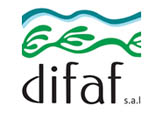
Difaf, Lebanon
Difaf is an environmental consultancy and a technical design bureau established in 2014 in Lebanon and is composed of a team of engineers, scientists, and policy experts. Difaf’s guiding objective is to create and sustain measurable improvements in the status of water and environmental resources.
Difaf provides management consultancy, technical assessments & designs, and equipment procurement to deliver solutions under the following sectors:
- Water Resource Management
- Wastewater Treatment & Reuse
- Conservation Agriculture
- Environmental Resource Management
Difaf offers a wide range of technical and qualitative services including, but not limited to:
- Environmental mapping, sampling, analysis, modeling, and monitoring
- Wastewater characterization and treatment solution development
- Hydrological and hydro-geological investigations and water balances
- Watershed and river basin modelling and management
- Agro-ecological system development such as aquaponics
- Nutrient uptake and recycling
- Pollution load and flux measurements
- Soil investigations and geotechnical assessments
- Environmental flow assessments (rivers and streams)
- Waste characterization and mass balances
- Environmental Impact Assessments & Audits
- Water, Sanitation and Hygiene (WASH) assessments
- Bio-index and biodiversity research
- Program and project evaluations
Since its creation, Difaf partnered with industries, ministries, international organization and NGOs and universities to deal with environmental concerns in Lebanon and the region.
Role in the project:
Difaf is responsible for the monitoring and evaluation of the socio-economic and environmental impacts of SUPROMED project in Lebanon. It will take part to the assessment of the impacts of SUPROMED at Mediterranean level and to the drawing up of policy recommendations for Lebanon and the other project’s countries.
Furthermore, Difaf is supporting ULFA in the selection of farms where SUPROMED project will be demonstrated and the identification of farmers to be associated to the trainings and other project’s activities.
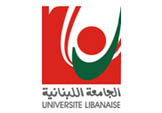
Lebanese University, Faculty of Agronomy, Lebanon
The Lebanese University is a public higher education institution and is the sole public university in Lebanon. Founded in 1961, LU accounts nowadays 81000 students, representing 44% of the higher education students in Lebanon. LU has about 5700 professors and researchers and 2023 employees. Established in 1974, the mission of the Faculty of Agronomy of the Lebanese University is to prepare qualified professionals in agriculture, based on scientific and practical research, to support sustainable agricultural development, resolve environmental problems and preserve the ecological system. Since its inception, ULFA has trained 1250 agronomists and 52 veterinary doctors. In 2006, the LMD system (Bachelor, Master, and PhD) was adopted, giving students more flexibility. The Bachelor program can be completed in three academic years, each consisting of 60 credits. The first five semesters of the Bachelor program form the core curriculum of all students of the Faculty. During this stage, language studies are taken very seriously. By the third year, students should master the two foreign languages (French and English), which are a prerequisite to pursuing a Master degree. As for the Master program, the Faculty includes seven departments, some of which provide different fields of specialization. The creation of different departments emanates from a will and a vision to develop specialized agronomists and not general engineers.
Role in the project:
ULFA is the leader of WP4 (Implementation of activities in the demonstration sites) of the project. Moreover, ULFA is the leader of Task 5.2 (Analyse the impact of implementing SUPROMED DSS in the demo site areas), the one two objectives are (i) definition of Key Performance Indicators (KPI), and (ii) comparison between the traditional management in the demo site areas and the one proposed by SUPROMED methodologies and tools.
